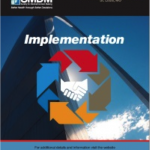Post submitted by Shelby Reed, PhD
Meetings of the Society for Medical Decision Making (SMDM) bring together transdisciplinary groups of individuals whose work is devoted to studying medical decisions to improve the health of individuals and populations. Every year’s meeting begins with short courses on Sunday led by international experts in decision modeling, decision theory, and statistics. This year’s SMDM meeting was held in St. Louis. The Midwest location appropriately matched the meeting’s theme: Implementation.
Keynote and plenary sessions about policy
 The meeting’s keynote presentation ‘The Policy Game’ was delivered by Pierre-Gerlier Forest PhD, who provided high-level view of policy implementation and evaluation. He emphasized that most policies fail to deliver their intended effects, and new policies are aiming to change the consequences of previously implemented policies. He proposed that successful policies require multilayered solutions and that their effectiveness is ultimately dependent on whether their implementation enables adaptation. The subsequent plenary sessions narrowed the focus to cover implementation of the Affordable Care Act with panelists representing the perspectives of Congress, hospitals, physicians, and payers, then drilling down in the final plenary to moving decision aids from research to real-world settings.
The meeting’s keynote presentation ‘The Policy Game’ was delivered by Pierre-Gerlier Forest PhD, who provided high-level view of policy implementation and evaluation. He emphasized that most policies fail to deliver their intended effects, and new policies are aiming to change the consequences of previously implemented policies. He proposed that successful policies require multilayered solutions and that their effectiveness is ultimately dependent on whether their implementation enables adaptation. The subsequent plenary sessions narrowed the focus to cover implementation of the Affordable Care Act with panelists representing the perspectives of Congress, hospitals, physicians, and payers, then drilling down in the final plenary to moving decision aids from research to real-world settings.
Patient preference research – huge Duke GIM presence

F. Reed Johnson, PhD, presenting about patients’ perceived value of whole genome sequencing information.
A prime example of translating research findings to policy was highlighted in a symposium highlighting the FDA’s Center for Devices and Radiological Health’s release of draft guidance as to how empirical, quantitative evidence on patient preferences can be used to assist regulators in their review and labeling of medical devices. Increasing interest in stated-preference research was evident with numerous podium sessions featuring best-worst scaling and discrete choice experiments in a wide range of applications stemming from investigating preferences for providing information on newborn screening programs to elucidating the impact of framing of death on generating health state values that could be used in cost-effectiveness analyses. Duke GIM faculty Reed Johnson presented on patients’ perceived value of whole genome sequencing information. Shelby Reed and Reed Johnson presented on results from pilot testing of a decision aid that incorporates an adaptive choice-based conjoint approach to elucidate an individual’s preferences about features relevant to choosing a treatment strategy for first-time shoulder dislocations in collaboration with Ben Streufert, Lori Orlando, Joel Huber and Chad Mather.
Duke collaborations
Research findings from DGIM faculty in collaboration with investigators from UNC and elsewhere were also presented. Clara Lee presented on behalf of her fellow UNC collaborators, Michael Pignone, Allison Deal, Ruth Huh, and Lillian Blizzard, and Duke Collaborator, Peter Ubel on the extent to which women mis-predict future well-being in decisions about breast reconstruction. Christine Kistler and Carmen Lewis, both from UNC, presented on behalf of a multi-institutional group including Rowena Dolor on factors that influence primary care physicians recommendations for prostate and colon cancer screening in older adults. And, Tom LeBlanc, David Rizzieri and other colleagues from the Mayo Clinic, Columbia University and Janssen Scientific Affairs presented on the development of an online patient decision aid for individuals previously treated for chronic lymphocytic leukemia.
New SMDM journal announced
During the meeting, the Society unveiled their journal, Medical Decision Making Policy and Practice. The journal will showcase papers focusing on research that has impacted health policy. Manuscripts are now being accepted at http://mdm.uic.edu/manuscript-submission/.
Next meetings: Hong Kong, London, and Vancouver
SMDM will host 3 meetings in 2016: the Asia-Pacific Conference in Hong Kong in January, the European Meeting in London in June, and next year’s meeting will be held in Vancouver in October. See www.smdm.org for more information.

